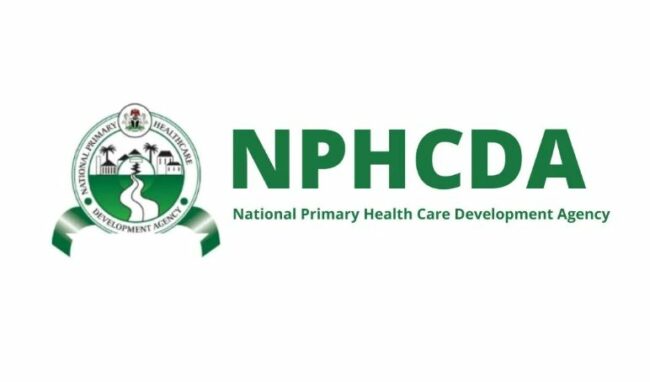The National Primary Health Care Development Agency (NPHCDA) has charged religious leaders to make renewed commitment to safeguard and promote vaccination, maternal and child health in the community.
It said, religious leaders have power to dispel myths, correct misinformation, and encourage positive health-seeking behaviours of their congregations.
The Executive Director of NPHCDA, Dr Muyi Aina, made the charge in his remarks at a 2-day engagement meeting with religious leaders on vaccination, maternal and child health in Abuja.
The meeting which was organised by the Sultan Foundation for Peace and Development supported by NPHCDA, was a gathering of distinguished religious leaders, both Christians and Muslims, to discuss critical issues affecting vaccination, maternal and child health in Nigeria.
Aina noted that religious leaders are not just spiritual guides but also advocates for the well-being of their followers.
“Your influence on parents can make the difference between a child dying from childhood diseases and another surviving because the latter was protected with vaccines,” he said.
Aina also stressed that the health of a nation is intricately tied to the health of its women and children adding that healthy mother ensures a healthy family, and a healthy child is the foundation of a prosperous future.
He, however, said, in many parts of Northern Nigeria, particularly in rural and underserved areas, demand for essential maternal and child health services remains a challenge.
“Too many women still die from complications related to pregnancy and childbirth, and too many children fail to reach their fifth birthday due to preventable diseases.
“Every day, Nigeria loses about 2,300 under five years old children and 145 women of child bearing age. Most of these deaths are occurring in northern Nigeria,” he said.
The ED also disclosed that Nigeria is currently witnessing intense transmission of the circulating variant poliovirus type 2(cVPV2), with a total of 70 cVPV2 from 46 LGAs across 14 Northern states.
This, he said is an indication of continuous transmission of the virus due to low routine immunization, and refusal of vaccines during polio campaigns.
He, therefore, called for change and stakeholders must ensure that every woman has access to antenatal care and every pregnancy is delivered by trained and skilled midwives,
“Every child completes their routine Immunisation according to the National schedule and get vaccinated every time vaccination teams visit their homes. Together, we must work to create a system that ensures no mother or child is left behind.
“I urge you all to make a renewed commitment to the health of our people and communities. We must focus on breaking down barriers to care, ensuring equitable access to services, and building trust between healthcare providers and the communities they serve.
“Our collective efforts can create an environment where every Nigerian child is immunized, and every Nigerian mother receives the care she deserves,” he stated.
Similarly, the World Health Organization, Country Representative, Dr Walter Kazadi Mulombo in his goodwill message, commended His Eminence, the Sultan of Sokoto, the Emir of Argungu, and the religious leaders for their steadfastness in the fight to stop the transmission of cVPV2 in communities, strengthening routine immunization and reducing morbidity and mortality from vaccine-preventable diseases.
Mulombo added that the partnership is a critical vehicle in achieving broader goal of universal health coverage, and it is imperative that this collaboration continues to be nurtured and sustained.
“This partnership is also aligned to the primary healthcare approach, the bedrock of Nigeria Health Policy, and a whole-of-society approach to health that aims to ensure the highest possible level of health and well-being, equitably distributed across all communities.”
He also explained that one of the three components of PHC is engaging and empowering individuals, families, and communities for increased social participation and enhanced self-care and self-reliance in health, and Religious authorities play a critical role as partners in engaging and empowering our communities.
Meanwhile, the Sultan of Sokoto, His Royal Eminence, Saad Abubakar in his remarks, emphasized the importance of collective action in addressing Nigeria’s challenges.
He stressed that religious leaders must work together to promote development, peace, and security, recognizing that these issues transcend religious boundaries.
“The Sultan Foundation’s work exemplifies the power of collaboration. Established to promote sustainable development and social cohesion, the foundation has made significant strides in addressing health, education, and economic empowerment.
“By partnering with organisations like UNICEF, Bill Gates Foundation, and other stakeholders, the foundation demonstrates the potential for collective impact,” he said.
He also noted that health and security are fundamental to Nigeria’s development stressing that without good health, individuals cannot contribute meaningfully to society, and without security, economic growth is impossible.
The Sultan highlighted the success of vaccination campaigns, citing the eradication of polio in Nigeria as a testament to collaborative efforts.
The Sultan also discussed the importance of zakat and tithe in promoting social development.
He encouraged Muslims to fulfill their zakat obligations and Christians to contribute their tithe, emphasizing that these religious obligations can drive positive change in communities.
The gathering underscored the need to break down barriers between faith communities. By fostering open dialogue and mutual understanding, religious leaders can combat misconceptions and promote peaceful coexistence.
ALSO READ THESE TOP STORIES FROM NIGERIAN TRIBUNE
Tinubu chairs FEC meeting as members celebrate Edo guber victory
